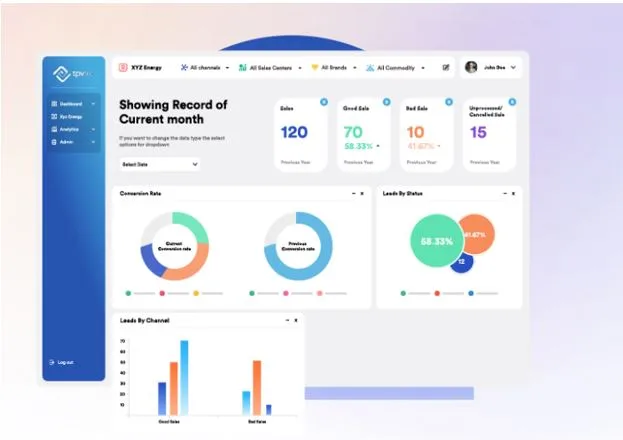Exploring Biomass Energy: Key Facts, Advantages, and the Role of Industrial and Domestic Biomass Boilers
Biomass energy is swiftly becoming a cornerstone in the renewable energy landscape, offering a sustainable and efficient alternative to fossil fuels. This article delves into the intricate details of biomass energy, exploring its key facts, advantages, and the crucial role both industrial and domestic biomass boilers play in harnessing this power. By the end, you will have a comprehensive understanding of how biomass energy can benefit your household or business.
What is Biomass Energy?
Biomass energy is derived from organic materials, such as plant and animal waste, which are converted into usable energy forms like electricity, heat, and biofuels. Unlike fossil fuels, biomass is renewable and can be replenished over short time periods, making it an attractive option for sustainable energy production. The primary source materials for biomass energy include wood, agricultural residues, and waste from the forestry and farming sectors.
This form of energy is particularly versatile, as it can be used across different sectors, from residential heating to large-scale power generation. The conversion processes involve direct combustion, gasification, pyrolysis, and anaerobic digestion, each method tailored to optimise the energy output from specific types of biomass. These processes not only generate energy but also contribute to waste management by utilising materials that would otherwise end up in landfills.
Additionally, biomass energy plays a significant role in reducing greenhouse gas emissions. By using organic materials that absorb carbon dioxide during their growth cycle, the net carbon emissions are significantly lower compared to traditional fossil fuels. This characteristic makes biomass energy an essential component of strategies aimed at mitigating climate change.
Understanding Industrial and Domestic Biomass Boilers
Industrial and domestic biomass boilers are systems designed to convert biomass into heat energy. These boilers are crucial in both residential and industrial settings for efficient energy production. The key difference between the two lies in their size and capacity; industrial biomass boilers are larger and capable of processing more significant amounts of biomass to meet higher energy demands.
Industrial biomass boilers are typically used in manufacturing plants, large buildings, and facilities that require substantial heating and energy production. They are engineered to handle a variety of biomass types, including wood chips and pellets, providing a flexible solution for energy needs. Their design includes features to maximise efficiency and reduce emissions, making them an eco-friendly choice for large-scale applications.
In contrast, domestic biomass boilers are smaller and designed for home use, providing an effective way to heat your home and supply hot water. These systems are often fed with wood pellets, which are compact and easy to store. Domestic biomass boilers offer a sustainable alternative to traditional gas or oil heating systems, reducing your carbon footprint and potentially lowering your energy bills.
Key Facts About Biomass Energy
- Renewability: Biomass energy is a renewable source, meaning it can be replenished naturally over a short period. This sets it apart from finite resources like coal and oil.
- Diverse Sources: Biomass energy can be derived from a wide range of organic materials, including agricultural waste, wood, and dedicated energy crops, providing flexibility in sourcing raw materials.
- Carbon Neutrality: When managed sustainably, biomass energy is considered carbon neutral. The carbon dioxide absorbed by plants during growth is roughly equal to the emissions produced during energy conversion.
- Global Usage: Biomass energy accounts for a significant portion of renewable energy use worldwide. Countries like Sweden and Finland heavily rely on biomass for their energy needs.
- Economic Impact: The biomass industry supports thousands of jobs in agriculture, forestry, and manufacturing. It also aids in rural economic development by providing new markets for Farmers.
These key facts highlight the importance of biomass energy in the global transition towards sustainable energy systems, offering economic, environmental, and social benefits.
Advantages of Biomass Energy for Businesses and Households
The advantages of biomass energy extend beyond environmental benefits, offering practical solutions for businesses and households alike. One of the primary advantages is the potential for cost savings. For businesses, especially those with access to biomass resources, using biomass boilers can significantly reduce energy costs compared to fossil fuel-based systems. This is particularly beneficial in industries with high energy demands, such as manufacturing and agriculture.
Households can also reap financial benefits by switching to domestic biomass boilers. Although the initial investment may be higher than traditional systems, the long-term savings on energy bills can be considerable. Additionally, governments in many regions offer incentives and rebates for installing biomass boilers, further enhancing their economic appeal.
Biomass energy also provides energy security by reducing dependence on imported fuels. By utilising locally sourced materials, both businesses and households can ensure a stable energy supply that is less vulnerable to global market fluctuations. This independence not only stabilises energy costs but also contributes to national energy security goals.
How Industrial Biomass Boilers Work
Industrial biomass boilers operate by burning biomass materials to generate heat, which is then used to produce steam. This steam drives turbines that generate electricity or provides direct heating for industrial processes. The efficiency of these systems is enhanced by advanced designs that improve combustion and heat transfer.
These boilers often incorporate technologies such as automatic feed systems and ash removal toensure continuous operation and minimal manual intervention. The choice of biomass material impacts the boiler’s performance, with wood chips and pellets being popular options due to their high energy content and consistent quality.Industrial biomass boilers also feature emission control mechanisms to minimise pollutants.
These include filters and scrubbers that capture particulates and gases, ensuring the systems comply with environmental regulations. By integrating these technologies, industrial biomass boilers provide a reliable and sustainable energy solution for large-scale applications.
The Benefits of Domestic Biomass Boilers
Domestic biomass boilers offer several benefits that make them an attractive option for homeownersseeking sustainable energy solutions. One of the main advantages is their environmental impact. By using biomass instead of fossil fuels, you can significantly reduce your household’s carbon emissions, contributing to global efforts to combat climate change.
Cost savings is another significant benefit of domestic biomass boilers. Although the initial setup costs can be higher compared to conventional heating systems, the long-term savings on energy bills can offset these costs. Additionally, many governments offer financial incentives for installing renewable energy systems, which can help mitigate the upfront expenses.
Moreover, domestic biomass boilers provide a reliable heating source, especially in rural areas where access to natural gas may be limited. With a steady supply of biomass materials such as wood pellets, you can ensure a consistent and dependable heat supply throughout the year. This independence from fluctuating fossil fuel markets also provides financial stability and predictability for your energy Expenses.
Environmental Impact of Biomass Energy
Biomass energy is often heralded for its potential to mitigate environmental impacts compared to traditional energy sources. One of the primary environmental benefits is its ability to reduce greenhouse gas emissions. Biomass, when sustainably sourced and managed, is considered nearly carbon neutral because the carbon dioxide released during combustion is offset by the carbon absorbed during the growth of the biomass materials.
Another significant environmental benefit is the reduction of waste. Biomass energy utilises organic waste materials that would otherwise contribute to landfill mass. This not only helps in waste management but also reduces methane emissions from decomposing organic matter in landfills. Additionally, using agricultural and forestry residues as biomass feedstock can lead to better land use practices and soil health, contributing to sustainable agricultural systems.
However, it’s essential to manage biomass energy production sustainably to avoid adverse environmental effects. Unsustainable harvesting of biomass resources can lead to deforestation and habitat destruction. Therefore, it is crucial to implement practices such as replanting and responsible sourcing to ensure that biomass energy remains a green and sustainable option.
Comparing Biomass Energy to Other Renewable Energy Sources
When comparing biomass energy to other renewable energy sources such as solar, wind, and hydro, several factors come into play. One of the primary differences is the energy storage capability. Biomass energy can be stored and used on demand, similar to fossil fuels, whereas solar and wind energy are intermittent and dependent on weather conditions.
Biomass energy also has the advantage of using existing waste materials, contributing to waste reduction and management. This contrasts with solar and wind energy, which require the manufacturing of specific technology components such as solar panels and wind turbines, both of which have their own environmental footprints.
In terms of energy density, biomass energy is comparable to traditional fossil fuels, providing a consistent and reliable energy output. This makes it particularly suitable for applications requiring a stable and continuous energy supply, such as industrial processes and residential heating. While solar and wind are excellent for electricity generation, biomass can provide both heat and power, offering a versatile solution for various energy needs.
Choosing the Right Biomass Boiler for Your Needs
Selecting the right biomass boiler depends on several factors, including your specific energy needs, available space, and budget. For industrial applications, you will need a boiler with a large capacity to handle substantial energy demands. Consider factors such as fuel type, efficiency, and emissions control when choosing an industrial biomass boiler to ensure compliance with environmental standards and optimal performance.
For domestic use, the size of your home and your heating requirements will determine the appropriate boiler size. Wood pellet boilers are a popular choice for homes due to their compact size and high efficiency. It’s also important to consider the availability and storage of biomass fuel when selecting a domestic boiler.
Additionally, consider the installation and maintenance requirements of the biomass boiler. Professional installation is crucial to ensure safety and efficiency, while regular maintenance will prolong the lifespan of the system and maintain its performance. Consult with a qualified professional to evaluate your needs and recommend the best biomass boiler solution for your situation.
Conclusion: The Future of Biomass Energy
The future of biomass energy is promising, with advancements in technology and increasing awareness of environmental issues driving its adoption. As more countries commit to reducing carbon emissions and transitioning to renewable energy, biomass will play a pivotal role in achieving these goals.
For businesses and households looking to invest in sustainable energy solutions, biomass boilers offer a viable and effective option. By choosing the right system and managing it sustainably, you can contribute to a greener future while enjoying long-term economic and environmental benefits.
If you are considering a switch to biomass energy, now is the time to explore the potential benefits for your home or business. Consult with UK experts from Proadvance to find the right biomass boiler for your needs and take a proactive step towards a sustainable energy future.




